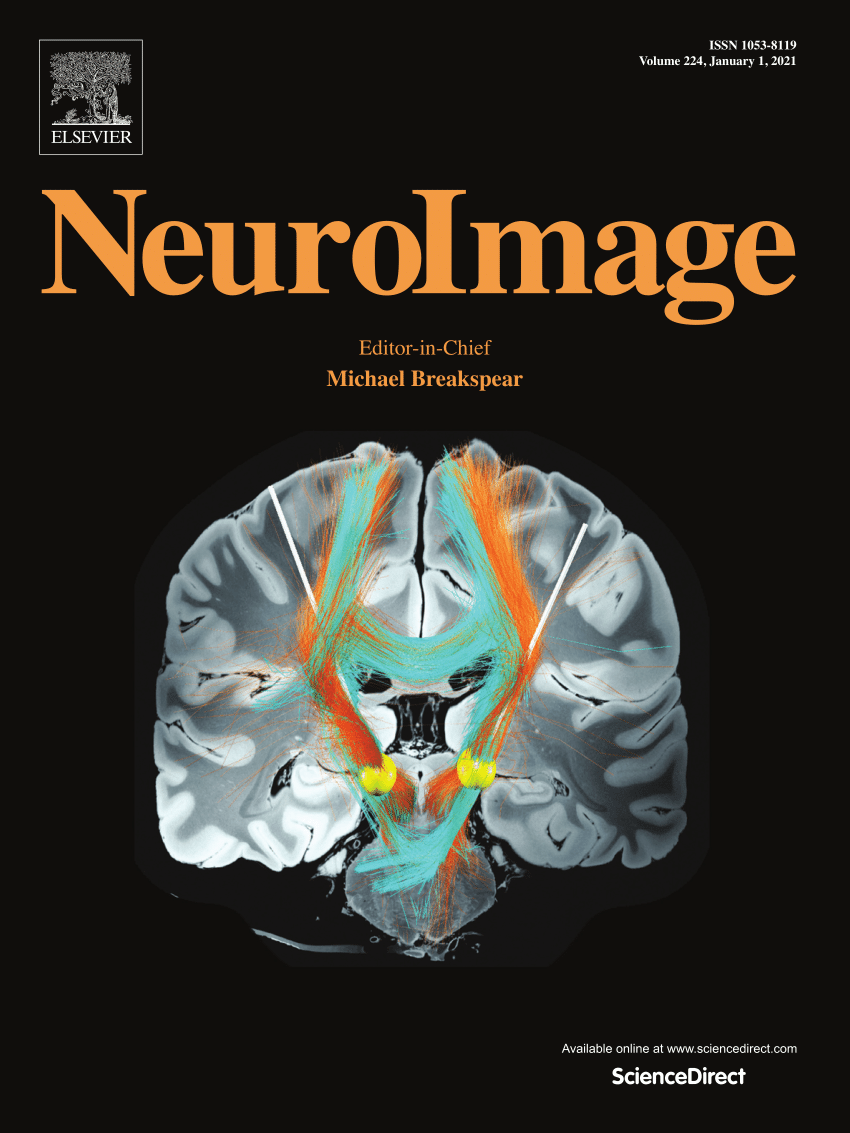Aligning with the good in urgency: The enhanced prosocial influence under high time pressure
IF 4.5
2区 医学
Q1 NEUROIMAGING
引用次数: 0
Abstract
Prosocial behavior is essential for enhancing human welfare, particularly in urgent situations. This study employed computational models and fMRI to examine how prosocial influence affects helping behaviors under varying levels of time pressure. Participants were tasked with deciding whether to reduce electric shocks to strangers at their own expense, influenced by varying levels of time pressure (high or low) and social influences (prosocial or selfish choices made by others). Both results of study 1 (n = 31) and study 2 (n = 39) showed that prosocial influence significantly increased helping tendencies, especially under high time pressure. The hierarchical drift diffusion model demonstrates that under high time pressure, prosocial influence accelerates evidence accumulation toward prosocial choices, while a conflict emerges between prosocial priori information and the process of evidence accumulation under low time pressure. Neural correlates also indicated distinct activation patterns associated with prosocial influence under high and low time pressures: heightened affective-related activation in the insula and medial cingulate gyrus under high pressure, and increased activation in the valuation related caudate nucleus, with altered connectivity to the lateral prefrontal cortex under low pressure. In urgent contexts, witnessing altruistic actions of others significantly enhances helping behaviors through increased activation of empathy-related neural regions. Conversely, in non-urgent situations, the impact of prosocial influence diminishes, as evidenced by changes in neural activity. These findings underscore the critical role of social influence in fostering prosocial behavior during emergencies, highlighting the importance of immediate action in urgent contexts.
紧急中的善:高时间压力下增强的亲社会影响。
亲社会行为对增进人类福祉至关重要,特别是在紧急情况下。本研究采用计算模型和功能磁共振成像来研究亲社会影响在不同时间压力水平下对帮助行为的影响。参与者的任务是决定是否自费减少对陌生人的电击,受到不同程度的时间压力(高或低)和社会影响(他人做出的亲社会或自私的选择)的影响。研究1 (n = 31)和研究2 (n = 39)的结果都表明,亲社会影响显著增加了帮助倾向,特别是在高时间压力下。层次漂移扩散模型表明,在高时间压力下,亲社会影响加速了亲社会选择的证据积累,而在低时间压力下,亲社会先验信息与证据积累过程发生冲突。神经相关研究还表明,在高时间压力和低时间压力下,与亲社会影响相关的不同激活模式:高压下,岛叶和内侧扣带回的情感相关激活增强,低压下,评估相关尾状核的激活增加,与外侧前额叶皮层的连接改变。在紧急情况下,目睹他人的利他行为通过增加共情相关神经区域的激活显著增强了帮助行为。相反,在非紧急情况下,亲社会影响的影响减弱,神经活动的变化证明了这一点。这些发现强调了社会影响在紧急情况下促进亲社会行为方面的关键作用,强调了在紧急情况下立即采取行动的重要性。
本文章由计算机程序翻译,如有差异,请以英文原文为准。
求助全文
约1分钟内获得全文
求助全文
来源期刊

NeuroImage
医学-核医学
CiteScore
11.30
自引率
10.50%
发文量
809
审稿时长
63 days
期刊介绍:
NeuroImage, a Journal of Brain Function provides a vehicle for communicating important advances in acquiring, analyzing, and modelling neuroimaging data and in applying these techniques to the study of structure-function and brain-behavior relationships. Though the emphasis is on the macroscopic level of human brain organization, meso-and microscopic neuroimaging across all species will be considered if informative for understanding the aforementioned relationships.
 求助内容:
求助内容: 应助结果提醒方式:
应助结果提醒方式:


